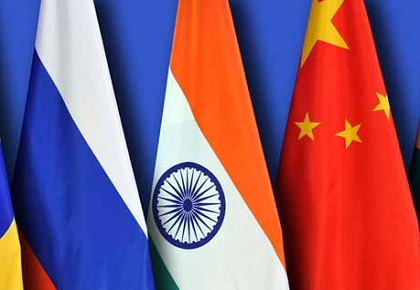Coast guards of three neighbouring countries, India, Sri Lanka and Maldives concluded the fifteenth edition of “Dosti” drill. This biennial trilateral exercise began on 20 November. The five-day exercise was flagged off in Maldives.
What is noteworthy is that this exercise has been going for 30 years, first launched in 1991. Initially, these exercises were bilateral, between India and Maldives. It was in 2012, that Sri Lanka began to participate in this exercise.
The five-day exercise aims to focus on mutual operational capabilities, and build interoperability among nations. The five-day drill is also meant to enhance friendship among these crucial states in the South Asian region.
ICGS Vajra, ICGS Apoorva from Indian Coast Guards and Sri Lanka Coast Guard’s SLCGS Suraksha participated in the exercise.
According to an official release, the drill is meant to provide assistance during sea accidents, eliminating sea pollution. The Coast guards of the three countries also underwent training on procedure and conduct to be followed in the event of an expedient situation such as oil spills.
Why is this drill important?
It may be noted that for Indian Coast Guards, it is important to maintain collaborative ties for its maritime security. Such drills prepare the forces for any kind of accident. This year, a 610-foot-long cargo ship carrying chemicals had sunk on the coast of Sri Lanka. It was one of the worst accidents in recent times, causing damage to fishes and the maritime ecosystem. The vessel was burning for almost a fortnight.
During such accidents, coast guards are the first rescuers. Moreover, the coast guard of a single country might not have the capability to deal with major accidents or disasters. The recently concluded drill will act as a template to deal with events in a collaborative way.
While Exclusive Economic Zones (EEZ) are defined by international laws, there are frequent incidents when trawlers or small vessels can enter into other country’s EEZ. Coast guards have to step in to deal with such scenarios. Drills enable the officials to discuss such issues face-to-face.
Moreover, all the three countries face common challenges namely the use of these waterways by drug traffickers and extremist groups.
An understanding among all three-coast guards can help in maintaining vigil on the high sea and sharing of timely intelligence.
Top security officials from India, Sri Lanka and Maldives have held periodic dialogue in recent years on the “four” pillars of security. The four pillars are human trafficking, maritime security, counter-terrorism and cyber security.
The three sides have also held NSA level talks on maritime security in the Indian Ocean region.









